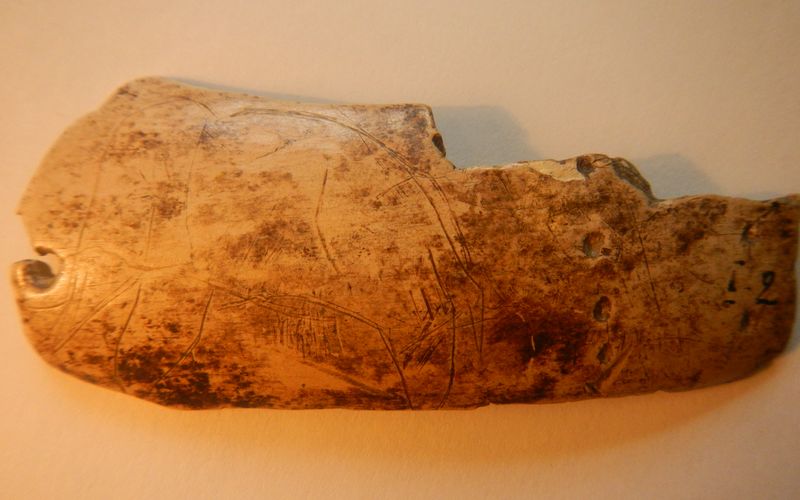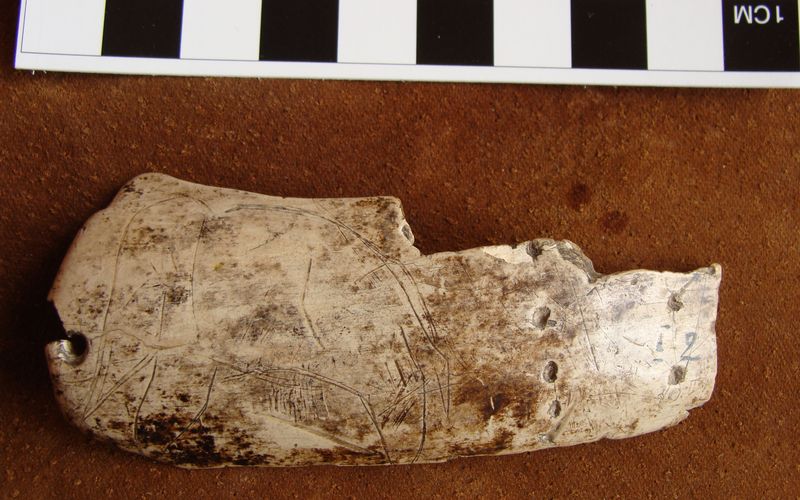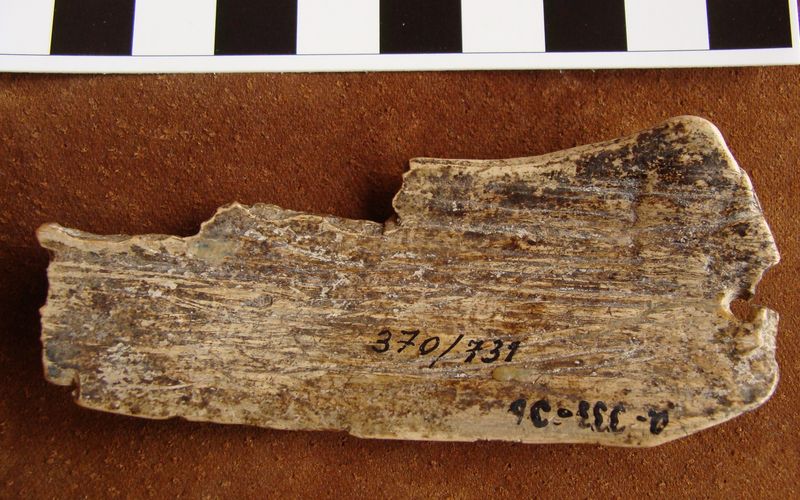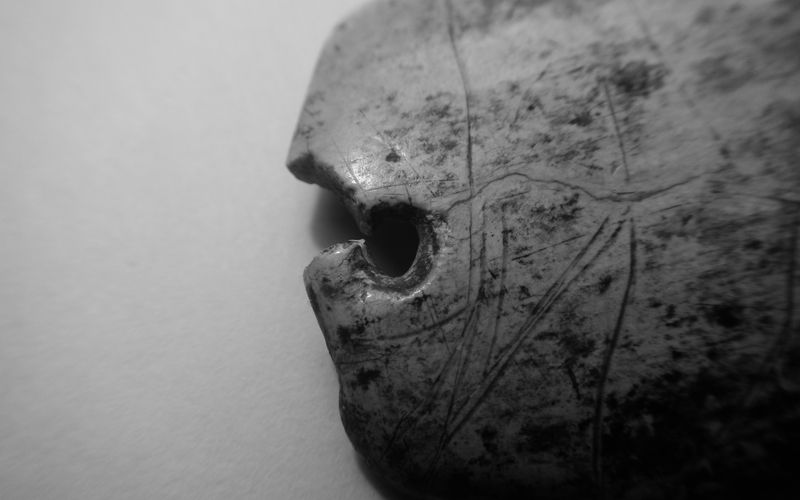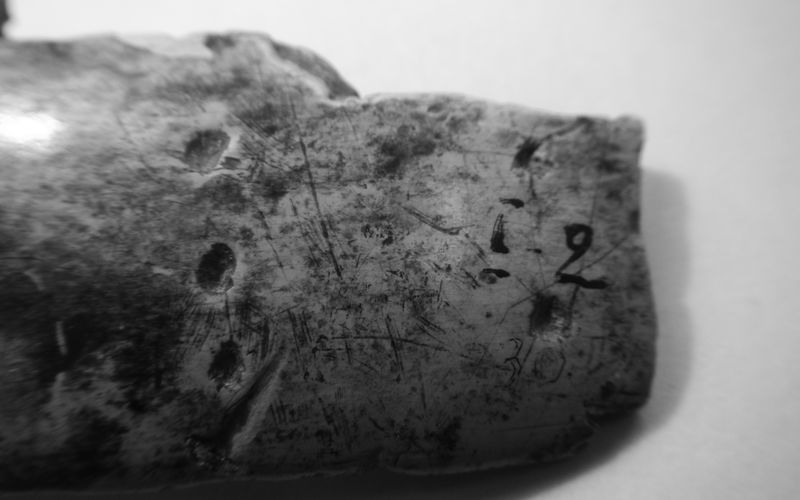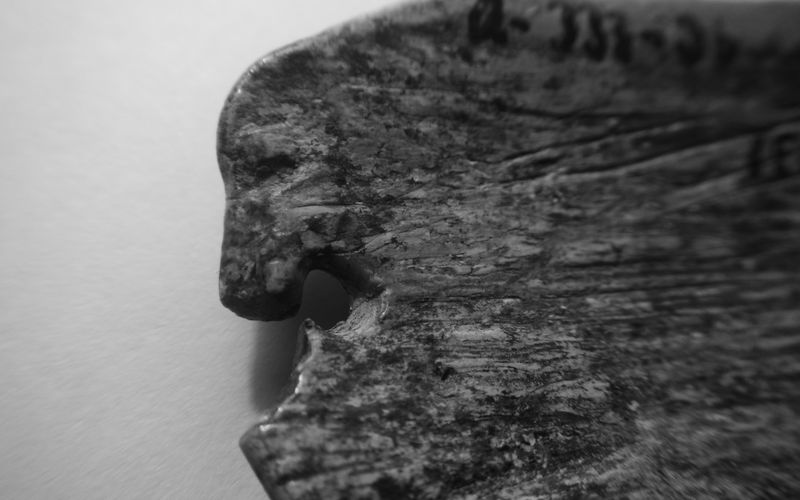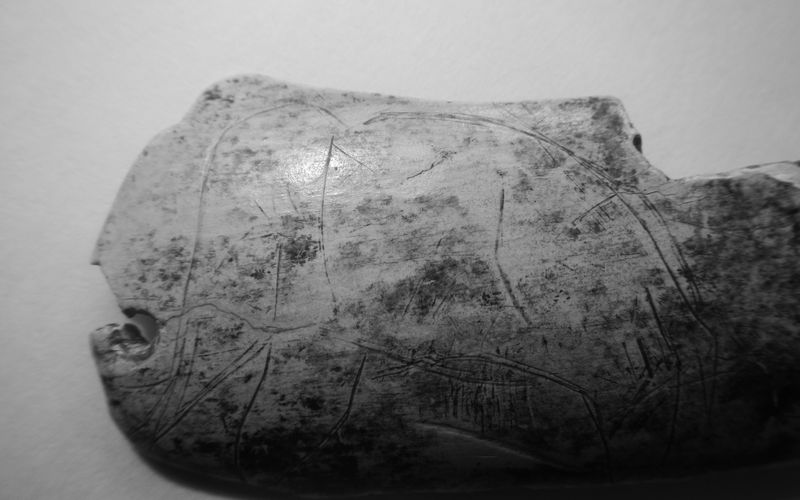Plate with the image of mammoth
An ivory plate, slightly curved. An image of a mammoth is engraved on the front side; there is a through hole along the left edge. Also there are several "cupulas" behind the image.
Manufacturing technique
There are traces with a burin work on the inner side. Biconical drilling is made with a reamer from the convex side. The hole is partially destroyed. Traces of a cutting tool work are found on the convex side. On the convex one, there are traces of a narrow burin work. On the convex side, there are no traces of a burin work. Caverns that form the first belt are made with an obtuse cutting tool that worked as a reamer with a rotation up to 180 degrees. Manufacturing technology of the second belt is the same, but the indentations are smaller. Then the item was polished. The item has traces of contact with soft material (clothes, a hand). The polishing of the convex side is more intensive than the polishing on the concave side.
The mammoth image is made with a stone cutting tool, in a relatively thin line. The head and the trunk are made in single lines. The back is cut in three-four lines. The belly wool is probably made with the same obtuse tool. The deepest lines are found on the front leg. Less deep lines are found on the tail and the belly wool.
Use-wear traces
The polishing along the broken line is not so intensive as it is on the narrowed edges. It can be due to the using of the plate after it has been broken.
Storage location
The State Hermitage MuseumInventory number
370/731Size
Sizes of the plate:
Length – 82.50 мм
Width – 31.69 мм
Thickness – 3.04 – 3.06 мм
Sizes of the indentations:
Diameter – 2.65 мм, 2.21 мм, 1.46 мм
Size of the mammoth image:
Length – 40.39 мм
Width – 32.36 мм
Material
IvoryDating
19-23 th years BPCulture
Mal'ta-Buret' archaeological cultureThe author of the excavations
Gerasimov M.M.1928
Publications
Gerasimov M.M. Paleoliticheskaya stoyanka Mal'ta // Sov. ehtnografiya, 1958. № 3, S.39-43 (ris.11,g) (in Russ.)
Abramova Z.A. Paleoliticheskoe iskusstvo na territorii SSSR // SAI, vyp. A 4-3. M,- L.: Izd-vo AN SSSR, 1963 –S. 48 (tab. 54) (In Russ.)
